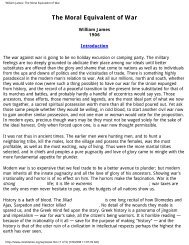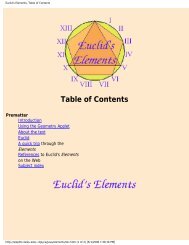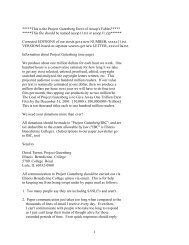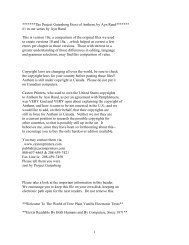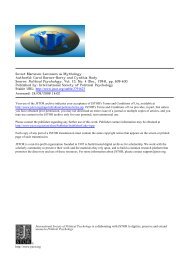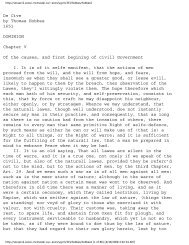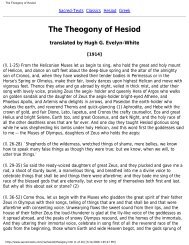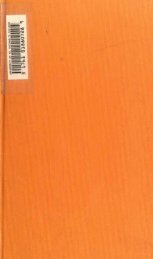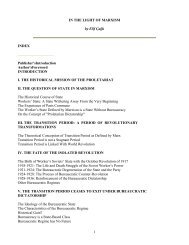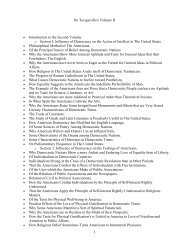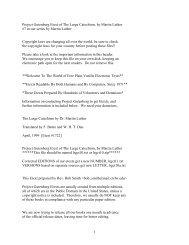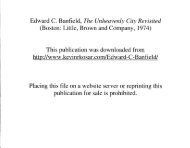Thomas Jefferson: A Manual of Parliamentary Practice
Thomas Jefferson: A Manual of Parliamentary Practice
Thomas Jefferson: A Manual of Parliamentary Practice
You also want an ePaper? Increase the reach of your titles
YUMPU automatically turns print PDFs into web optimized ePapers that Google loves.
<strong>Thomas</strong> <strong>Jefferson</strong>: A <strong>Manual</strong> <strong>of</strong> <strong>Parliamentary</strong> <strong>Practice</strong><br />
gives leave to the member to attend, if he chuse it; waiting first to know from the member<br />
himself whether he chuses to attend, till which, they do not take the message into<br />
consideration. But when the peers are sitting as a court <strong>of</strong> criminal judicature, they may order<br />
attendance; unless where it be a case <strong>of</strong> impeachment by the Commons. There it is to be a<br />
request. 3 Hats. 17. 9 Grey 306, 406. 10 Grey 133.<br />
Counsel are to be heard only on private, not on public bills, and on such points <strong>of</strong> law only as<br />
the House shall direct. 10 Grey 61.<br />
SEC. XIV.<br />
ARRANGEMENT OF BUSINESS.<br />
THE Speaker is not precisely bound to any rules as to what bills or other matter shall be first<br />
taken up, but is left to his own discretion, unless the House on a question decide to take up a<br />
particular subject. Hakew. 136.<br />
A settled order <strong>of</strong> business is, however, necessary for the government <strong>of</strong> the presiding person,<br />
and to restrain individual members from calling up favorite measures, or matters under their<br />
special patronage, out <strong>of</strong> their just turn. It is useful also for directing the discretion <strong>of</strong> the<br />
House, when they are moved to take up a particular matter, to the prejudice <strong>of</strong> others having<br />
priority <strong>of</strong> right to their attention in the general order <strong>of</strong> business.<br />
In Senate, the bills and other papers which are in possession <strong>of</strong> the House, and in a<br />
state to be acted on, are arranged every morning, and brought on in the following<br />
order.<br />
1. Bills ready for a second reading are read, that they may be referred to<br />
committees, and so be put under way. But if, on their being read, no motion is<br />
made for commitment, they are then laid on the table in the general file, to be<br />
taken up in their just turn.<br />
2. After twelve o'clock, bills ready for it are put on their passage.<br />
3. Reports in possession <strong>of</strong> the House, which <strong>of</strong>fer grounds for a bill, are to be<br />
taken up, that the bill may be ordered in.<br />
4. Bills or other matters before the House and unfinished on the preceding day,<br />
whether taken up in turn, or on special order, are entitled to be resumed and<br />
passed on through their present stage.<br />
5. These matters being dispatched, for preparing and expediting business, the<br />
general file <strong>of</strong> bills and other papers is then taken up, and each article <strong>of</strong> it is<br />
http://www.constitution.org/tj/tj-mpp.htm (18 <strong>of</strong> 70) [4/14/2008 6:37:46 PM]



